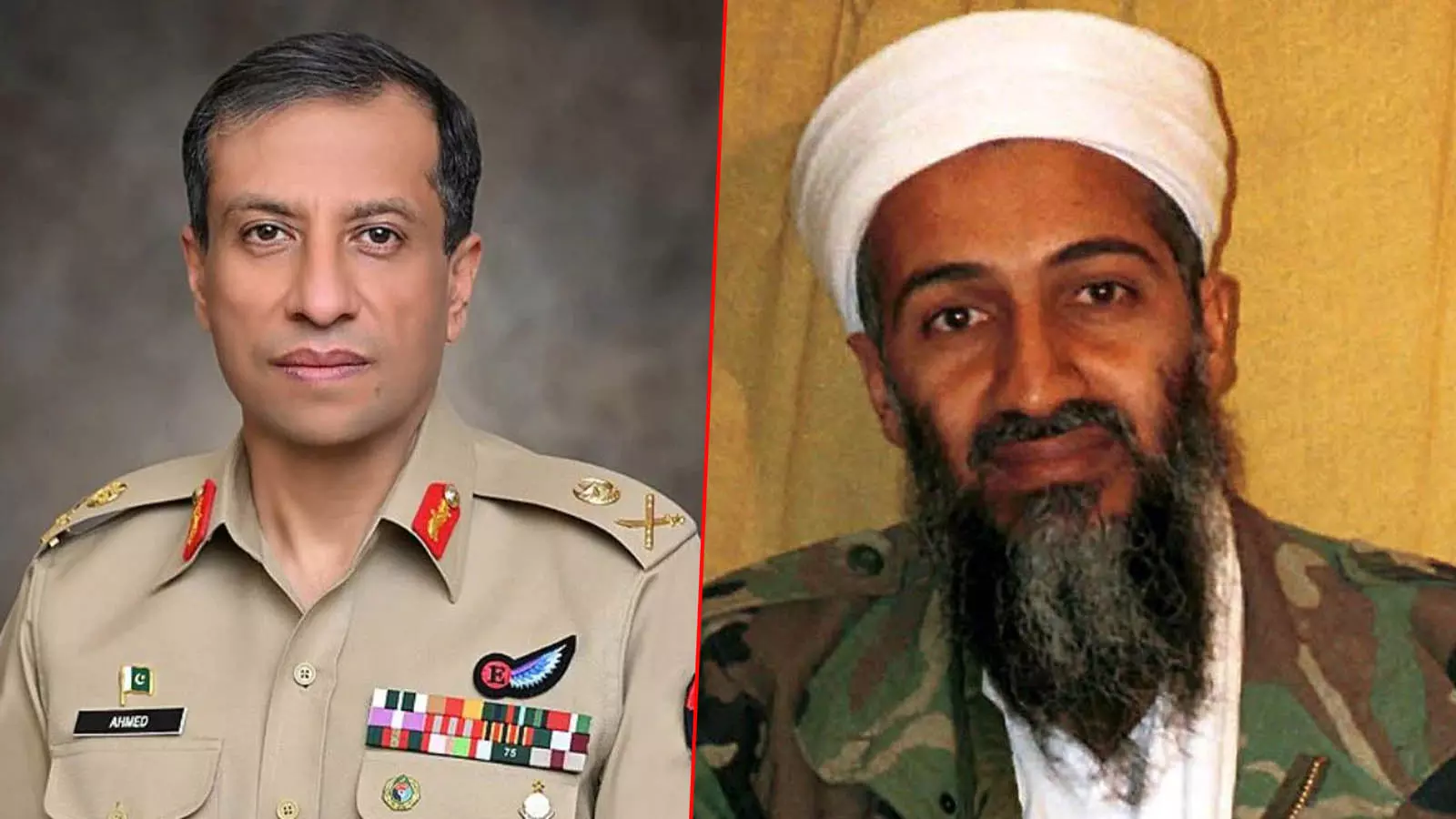
Osama, djinns, nukes: Pakistan Army spokesperson's al-Qaida link
Lt General Chaudhry is the son of Sultan Bashiruddin Mahmood, a nuclear engineer sanctioned by United Nations for his alleged contacts with terror organisations

As tensions escalate between India and Pakistan, Lieutenant General Ahmed Sharif Chaudhry has been making more media appearances than usual, spotlighting not just his role as the Director General of Inter-Services Public Relations (ISPR) but also his controversial family legacy.
Heading Pakistan’s military messaging, Lt General Chaudhry is the son of Sultan Bashiruddin Mahmood, a nuclear engineer once honoured by the Pakistani state, and later sanctioned by the United Nations for his alleged contacts with terrorist organisations, including the al-Qaeda.
Also Read: Explained: What blackouts achieve during conflict in era of GPS, precision weapons
A tainted legacy
Chaudhry’s father, Sultan Bashiruddin Mahmood, is no ordinary nuclear scientist. Once honoured by Pakistan with the Sitara-e-Imtiaz, Mahmood played a central role in developing Pakistan’s nuclear infrastructure, including the construction of uranium enrichment plants and the design of reactors necessary for Pakistan's transition from uranium to plutonium-based weapons capability.
These facilities form the backbone of Pakistan's nuclear arsenal. But his activities after his retirement from the Pakistan Atomic Energy Commission deeply alarmed Western intelligence.
The UNSC's al-Qaida Sanctions Committee page lists Lt Gen Chaudhry's father as "Mahmood Sultan Bashir-Ud-Din".
Also Read: India's response firm to Pakistan’s provocative strikes: MEA
Links with al-Qaida
In the early 2000s, Mahmood co-founded Ummah Tameer-e-Nau (UTN), a supposed NGO operating in Taliban-controlled Afghanistan.
Beneath its charitable facade, UTN engaged with terror networks. According to UN records, Mahmood and his colleague Chaudhri Abdul Majeed met Osama bin Laden and Ayman al-Zawahiri in August 2001, just weeks before the 9/11 attacks.
While no conclusive evidence emerged to suggest that nuclear weapons technology had been transferred, the meetings triggered alarm in Washington and led to Mahmood's arrest and interrogation by Pakistani authorities.
Also Read: Missile attack: Pakistan shuts its airspace totally
UN sanctions
Mahmood’s meetings with bin Laden raised fears of nuclear material falling into al-Qaida’s hands.
UN reports state that Mahmood provided al-Qaida leaders with information about nuclear, chemical, and biological weapons infrastructure.
"UTN provided Usama bin Laden and the Taliban with information about chemical, biological and nuclear weapons. Bashir-Ud-Din provided information about the infrastructure needed for a nuclear weapons program and the effects of nuclear weapons," the United Nations statement read.
Under US pressure, Pakistan’s Inter-Services Intelligence (ISI) arrested Mahmood in 2001. He was interrogated over his meetings with terrorist leaders but was later released, with Pakistani authorities claiming he lacked the technical capacity to build a nuclear device independently.
Also Read: Pakistan used 300-400 Turkish drones to target Indian cities: MEA
Radical scientist
Mahmood’s scientific writings were laced with religious zeal, including theories about djinns—the mythical beings that feature prominently in Islamic literature—as potential sources of limitless energy (these beings are key to solving earth's energy crisis.)
His ideological leanings and sympathy for Islamic extremism frightened even his peers in Pakistan’s scientific establishment.
As detailed in the book The Man from Pakistan by investigative journalists Douglas Frantz and Catherine Collins, Mahmood viewed Pakistan’s nuclear arsenal not merely as a national asset but as the shared property of the broader Muslim community.
He believed that nuclear weapons should be made available to other Islamic nations, especially those in opposition to the West.
Chaudhry’s military rise
His son, Lt General Ahmed Sharif Chaudhry, built his career independently within the Pakistan Army.
Trained as an officer in the Corps of Electrical and Mechanical Engineering, Chaudhry has served in a range of roles, including within the military operations directorate and the Defence Science and Technology Organisation (DESTO), an institution involved in Pakistan's defence research.
Although DESTO came under US sanctions following Pakistan’s 1998 nuclear tests, these restrictions were later relaxed after 9/11 to enable cooperation in the War on Terror.

